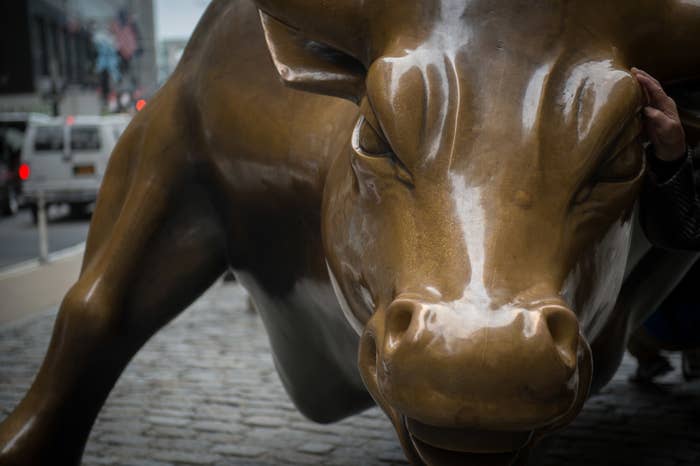
Treasury Secretary Steven Mnuchin has clarified the Trump administration's approach to Wall Street by making clear one thing it does not support: breaking up the big banks.
"We do not support a separation of banks from investment banks, we think that would have a very significant problem on the financial markets, on the economy and liquidity," Mnuchin said at a Senate hearing today. "We do not support a separation of banks and investment banks."
Mnuchin says breaking up big banks would be a "huge mistake" https://t.co/2wA90YGrsH
Mnuchin's words settled a long-running ambiguity about exactly what the Trump administration meant when it said it supported a "21st-century Glass-Steagall."
This is a reference to the Banking Act of 1933, sponsored by Carter Glass and Henry Steagall, which forced traditional banks — those that take deposits from the public and make loans — to be separated from those that trade stocks and bonds or issue securities.
Those rules were eliminated by the Clinton administration, and led to the supersized financial institutions like JPMorgan Chase and Bank of America that dominate Wall Street today — and which many labeled as prime culprits in the lead-up to the financial crisis. Trump called for a 21st-century version of the rules during his presidential campaign, leaving some wondering if his administration was open to a break-up of the big banks.
Mnuchin's statement put those questions to bed — and drew the ire of Democratic Sen. Eizabeth Warren, who argued that anything called "Glass-Steagall" needed to include separating risky trading activities from old-fashioned banking.
Mnuchin said he had not reversed himself or the administration's position, instead saying that a "21st-century Glass-Steagall" was always going to be different from the original rules, introduced in the wake of the Great Depression.
"I'm well-aware of what Glass-Steagall was," Mnuchin told Warren. "If we had supported a full Glass-Steagall, we would have said at the time that we had believed in Glass-Steagall, not a '21st-century Glass-Steagall.'"
Toward the end of a typically contentious interaction with Warren, Mnuchin said it would be a "huge mistake" to break up big banks.
The combination of commercial banking and trading, the argument goes, led to oversized financial institutions whose crucial lending operations (and consumer deposits, insured by the federal government) were endangered by risky trading activities. Bernie Sanders supported breaking up the banks during the presidential campaign, as did Elizabeth Warren and John McCain.
Mnuchin was clear about what a 21st-century Glass-Steagall would not do, but he was less clear about what it would. He said that rather than splitting up the big banks, it would focus on "supporting and making sure that community banks and regional banks could grow so we don't' just end up with big banks."
Few observers expected the Trump administration to support a far-reaching reform that would break up several of the largest companies in America. But the president's position on the financial industry — from the campaign trail through to his still-young presidency — has been ambiguous at best.
Large banks were a major punching bag during the campaign, and the Republican platform said it plainly: "We support reinstating the Glass-Steagall Act of 1933, which prohibits commercial banks from engaging in high-risk investment."
But since becoming president, Trump's rhetoric on financial regulation has been that there's too much of it.
"Frankly I have so many people, friends of mine, that have nice businesses and they can’t borrow money," Trump said in February. He also appointed banking executives, bank veterans, and bank lawyers to many high-ranking roles in his administration, including the head of Securities and Exchange Commission, Treasury secretary, head of the National Economic Council, and head of the federal bank regulator the Office of the Comptroller of the Currency.
